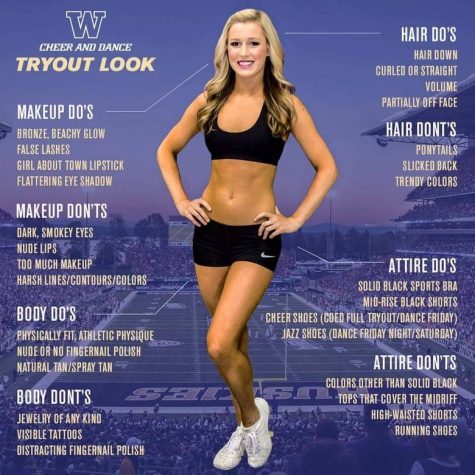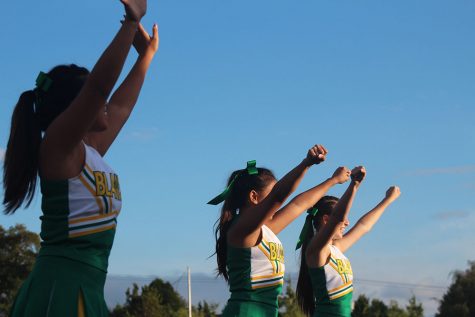Bishop Blanchet cheerleaders react to the UW cheer scandal
May 5, 2016
On Monday, April 25 the University of Washington cheerleading team posted an info graph advising cheer hopefuls on what to wear for the Husky cheerleader tryouts.

The University of Washington created this graphic, “in response to a high volume of student questions about cheer and dance team tryouts.” A slender, white, blonde cheerleader stands in the middle of the post with recommendations on attire and style surrounding her.
The post broke the internet on Monday night. It received thousands of retweets and severe backlash. Many calling the post “racist”, and saying that it was, “offensive, exclusionary and ignorant.” The Bishop Blanchet Cheer Squad, preparing for tryouts of their own, felt the impact of this post.
“I find this poster to be highly offensive,” said Eliza Peñalosa. “It presents society a stereotypical view of what it means and what it looks like to be a cheerleader. Cheer is more than superficial body standards and nicely curled hair. It confines cheerleaders to a certain generalization and gives the world a bad impression about the way we work.”
Other than this negative reaction, many others in the cheer world found this poster to be less offensive. Olivia Gasca, a junior cheerleader at Blanchet, said that she didn’t find the poster offensive at all, and that it was simply just a suggestion on how to come to tryouts. In collegiate athletic tryouts, hopefuls are often asked to wear certain clothing so that, if selected for the team, they are not chosen for their clothing or appearance.

As a staff, The Miter decided that the UW cheer poster was originally meant to be strictly informational. However, certain aspects of the info graph such as the request for all cheerleaders to have their hair down at all times belittles cheerleaders and is overall offensive to women.
“Cheerleading is hard work,” said senior Hailey Hartwich. “The stunting, dancing, and cheering we do takes a lot more effort than people realize, and the UW cheer poster just plays to the stereotypical ‘cheerleader’ and should be offensive to all hardworking, dedicated cheer athletes.”





